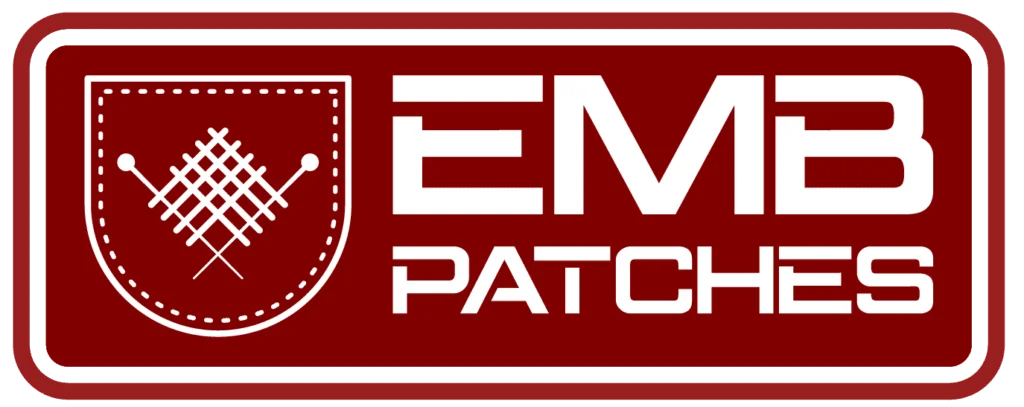Businesses seeking custom embroidered patches have several sourcing options. Direct manufacturing partnerships offer long-term stability, while on-demand services provide flexibility for changing needs. Global sourcing networks present cost-saving opportunities, though domestic production guarantees faster turnaround. Quality assurance protocols should include rigorous vetting and inspection standards. Both digital procurement platforms and sustainable sourcing practices are gaining importance. Each approach carries distinct advantages depending on volume requirements, timeline constraints, and quality expectations.
Direct Manufacturing Partnerships: Building Relationships With Patch Specialists
When organizations seek to source custom embroidered patches at scale, establishing direct manufacturing partnerships emerges as a critical strategy for long-term success. These collaborations involve building sustained relationships with patch specialists who understand specific production requirements and quality standards.
Effective relationship management creates a reliable supply chain, reducing delays and miscommunications that often plague one-off ordering processes.
Businesses should carefully evaluate potential manufacturing partners based on production capacity, technical expertise, and communication systems. Many organizations overlook the importance of cultural alignment when selecting patch specialists, leading to preventable conflicts.
The most successful partnerships typically involve regular quality reviews, clear specification documents, and established escalation procedures. As production volumes increase, these direct relationships often yield significant cost advantages while ensuring consistent quality across all patch orders.
On-Demand Production Services for Flexible Business Needs
As business requirements fluctuate throughout the year, on-demand production services offer a compelling alternative to traditional bulk ordering systems for custom embroidered patches.
These services eliminate the need for maintaining excessive inventory while ensuring businesses can respond quickly to changing market demands.
On-demand customization platforms connect businesses directly with manufacturers who can produce small patch runs efficiently, often with minimal setup fees.
Companies benefit from flexible fulfillment options that allow for just-in-time production schedules, reducing storage costs and preventing waste from outdated designs.
This approach is particularly valuable for seasonal promotions, special events, or when testing new patch designs before committing to larger quantities.
However, businesses should carefully evaluate production timelines, as on-demand services may require longer lead times than pre-stocked inventory solutions.
Global Sourcing Networks: Comparing Domestic vs. International Options
Where a business chooses to source its custom embroidered patches can greatly impact quality, cost, and delivery timelines across the supply chain.
Domestic production typically offers faster turnaround times, stronger quality control, and simpler communication, though at higher price points.
International manufacturing, particularly in regions like Southeast Asia and India, provides significant cost advantages but requires longer lead times.
Recent global trends indicate a hybrid approach gaining popularity, with businesses balancing domestic prototyping with overseas bulk production.
A thorough cost analysis should account for more than base pricing—customs fees, shipping delays, and potential quality inconsistencies must factor into international sourcing decisions.
Companies must also consider ethical manufacturing standards and sustainability practices, as these concerns increasingly influence both regulatory compliance and consumer preference in the embroidered patch industry.
Quality Assurance Protocols When Selecting Patch Suppliers
The selection of quality patch suppliers requires rigorous vetting processes that extend beyond price considerations examined in sourcing decisions. Companies must establish thorough inspection protocols, examining samples for thread tension, backing quality, and color accuracy before finalizing partnerships.
Supplier certifications provide objective verification of manufacturing standards, with ISO 9001 certification indicating adherence to internationally recognized quality management systems. Businesses should request documentation of quality control procedures, including how defects are identified, tracked, and remediated throughout production cycles.
On-site visits, when feasible, allow direct observation of production facilities and worker conditions.
Implementing supplier scorecards that track consistency, on-time delivery, and defect rates creates accountability and provides quantifiable data for ongoing supplier relationship management, ensuring patches consistently meet brand standards.
Digital-First Patch Procurement Platforms for Modern Businesses
Modern procurement strategies have evolved dramatically with the emergence of digital-first platforms specifically designed for custom embroidered patch sourcing. These digital procurement solutions streamline the ordering process while providing businesses with expanded supplier networks and competitive pricing options.
- Online marketplaces connect businesses directly with verified manufacturers, eliminating traditional intermediaries.
- Real-time design collaboration tools allow for immediate feedback and adjustments.
- Automated quoting systems provide transparent pricing and production timelines.
- Digital sample approval processes reduce production delays and miscommunications.
Companies utilizing these platforms often experience reduced lead times and lower minimum order quantities compared to traditional sourcing methods.
However, businesses must carefully evaluate platform security features and supplier verification processes before committing to digital procurement channels. The right platform should balance convenience with quality assurance mechanisms.
Sustainable and Ethical Patch Sourcing: The New Business Imperative
As corporate social responsibility initiatives expand across industries, sustainable and ethical patch sourcing has emerged as a critical consideration for businesses seeking to align their promotional products with their values.
Companies now evaluate suppliers based on their use of eco-friendly materials, including organic cotton, recycled polyester, and natural dyes that reduce environmental impact.
Ethical labor practices represent another essential component of responsible sourcing. Forward-thinking businesses verify manufacturing facilities maintain fair wages, safe working conditions, and prohibit child labor through third-party certifications and factory audits.
These verification processes help guarantee patch production doesn’t contribute to exploitation.
Implementing sustainable sourcing may increase costs slightly, but benefits include enhanced brand reputation, customer loyalty, and compliance with emerging regulations—making it less a luxury and more a necessity for modern businesses.
While domestic manufacturers offer personal relationships and fast turnaround, international partners deliver competitive pricing and volume capacity. Businesses must balance these trade-offs when selecting embroidered patch suppliers. The most successful sourcing strategies combine digital procurement platforms with rigorous quality controls and sustainability standards. In today’s market, ethical production is no longer optional—companies that neglect responsible sourcing risk both their reputation and their competitive edge.

